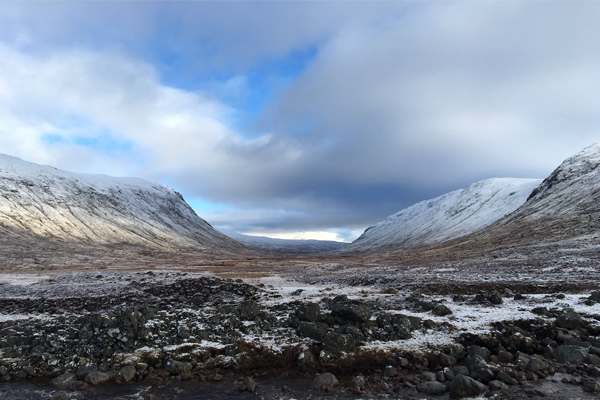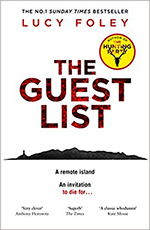Features
Agatha Christie and Secrets

This piece was written by bestselling author and Agatha Christie fan Lucy Foley
Spoiler alert: This article contains spoilers for And Then There Were None and Endless Night
A murder mystery is by its very nature concerned with secrets. But what I particularly love about Agatha Christie’s fiction is how it takes the familiar and turns it on its head, making it twisted, menacing and uncanny. This is exemplified by her choice of protagonists, who are, in the overwhelming majority, ‘normal’ people. They’re soldiers and lawyers, schoolteachers and judges. They’re upstanding members of society. And yet we learn that these figures are capable of concealing terrible secrets. And the greater the gulf between the familiar, respectable surface and the dark secret beneath it, the more visceral the shock is for the reader when all is revealed.
Witness And Then There Were None, in which all of the characters invited to the ominous Soldier Island — including a doctor, a governess and a former policeman — are each hiding a terrible truth about themselves. They are all killers. The interesting thing here is that they are all keeping this fact secret even from themselves. Each has chosen, conveniently, to put their faith in the maxim ‘innocent until proven guilty’; because none of them have been found culpable by a court of law, they can continue to view themselves as blameless. As George Orwell puts it: ‘if you want to keep a secret, you must also hide it from yourself. You must know all the while that it is there, but until it is needed you must never let it emerge into your consciousness in any shape that can be given a name.’ This is what the characters in And Then There Were None have managed to do, relatively successfully, up to the point at which U.N. Owen invites them to the island, upon which their mysterious host — and Christie — will no longer allow them to continue the pretence. Here, with no physical or emotional means of escape, they are forced to confront their own inner darkness, to finally feel their guilt… and to pay for it with their lives.
The characters lured to Soldier Island are all strangers to each another, even if they are familiar ‘types’ for the reader. But elsewhere Christie plays with another kind of familiarity — in which the characters are known to one another, in tight-knit communities like St Mary Mead, backdrop of Miss Marple mysteries such as The Murder at the Vicarage, Nemesis and The Mirror Crack'd from Side to Side. Or the village in the brilliant standalone The Pale Horse — in which Christie also flirts with the secretive world of the occult as practised by three otherwise rather normal-seeming elderly ladies. What dark practices, Christie asks, might be going on in the average sleepy village? She appeals, in the process, to that curtain-twitching impulse in all of us, that curiosity so many of us have about what might be going on behind closed doors in our own communities. We see this in the current popularity of domestic noir and in the sub-genre recently termed ‘crib-lit’ — see Louise Candlish’s brilliant Those People, in which a group of middle-class, otherwise well-behaved neighbours begin to behave more and more savagely when some antisocial new residents move onto their street, until one of them is concealing the ultimate secret: murder.
Sometimes Christie presents us with friends or even family members keeping secrets from one another — as in Ordeal By Innocence or Appointment with Death, in which the first words in the novel are: ‘you do see, don’t you, that she’s got to be killed?’, uttered by a man asking his sister how they are going to go about murdering their mother. And in The Mysterious Affair at Styles we are told that: ‘every murderer is probably somebody’s old friend.’ This was very much something I wanted to explore in writing my own murder mystery, The Hunting Party. I was particularly interested in the idea of ‘old friends’, and the sense of familiarity and comfort inherent in the term. My characters have travelled up to a remote estate in Scotland to celebrate New Year’s Eve. They’re all tied together by their shared history. They’ve known each other for a decade, since university when they all became friends. Now, stuck in the middle of nowhere with the weather closing in and few distractions, they are forced to take a long hard look at one another and in the process begin to realise that they’re not quite as close as they thought they were. That, in fact, some of them may be concealing huge, friendship-destroying and even deadly secrets from one another.

In writing The Hunting Party I was also inspired by another Christie trope which is the confined or remote setting. If secrets are to be outed, they need to have some impetus to do so — and Christie is a master of the pressure-cooker situation, in which all the characters are gathered together with no means of escape, whether that be a snowbound train, a riverboat on the Nile, an island with no boat back. Here they find it impossible to keep up the front of respectability any longer and are forced to reveal their darker selves.
Elsewhere in Christie’s oeuvre we are literally put inside the head of someone who appears outwardly respectable but is concealing their own terrible secrets from others and even from the reader, as in the brilliantly disturbing Endless Night, which is arguably a spiritual precursor to books such as Patricia Highsmith’s The Talented Mr Ripley or, more recently, Caroline Kepnes’ You, about a murderer who hides beneath the eminently respectable guise of a bookseller. This is something that I wanted to do in my book — the reader is privy to the first person accounts of four of the protagonists, but is never quite sure of the truth of what they are being told.
What I believe Christie was doing, and what I try to do in The Hunting Party and my new book, The Guest List, is to profoundly unsettle the reader by asking them to look at their own lives in a different light. To examine the outwardly respectable people they come into contact with in their daily interactions and consider whether they might be hiding something and what circumstances might cause the mask to slip. To understand that everyone is capable of concealing a dark secret. To even, perhaps, look inwards, at themselves. After all, as Christie put it in 'The Man in the Mist': ‘very few of us are what we seem.’ And here’s the thing that Christie shows us so emphatically: ultimately secrets will out. Sometimes with the deadliest of consequences…

Lucy Foley studied English Literature at Durham and UCL universities and worked for several years as a fiction editor in the publishing industry, before leaving to write full-time. The Hunting Party is her debut crime novel, inspired by a particularly remote spot in Scotland that fired her imagination. Her latest novel, The Guest List, is out now.
Lucy is also the author of three historical novels, which have been translated into sixteen languages. Her journalism has appeared in ES Magazine, Sunday Times Style, Grazia and more.


 USA
USA 